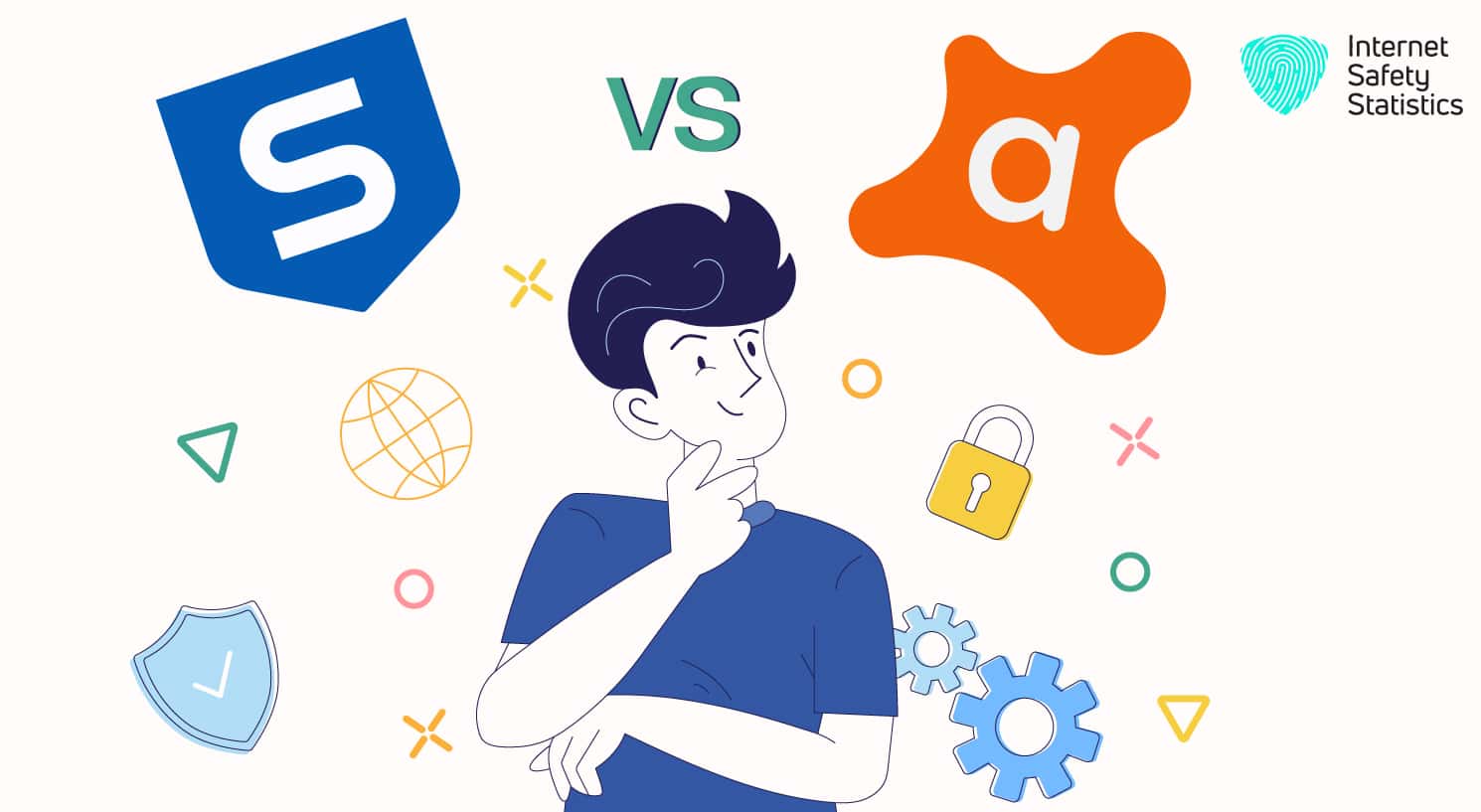
When choosing the right cybersecurity software for your needs, it’s important to consider the options available to you. Avast and Sophos are two popular antivirus solutions known for their strong protection against malware and online threats.
This article will highlight their key features, user interface, impact on system resources, customer support, and pricing. By understanding the similarities and differences between these two software options, you can make an informed decision to ensure the security of your digital devices. Let’s dive into the Avast vs Sophos comparison and discover the best fit for you.
Avast
Avast is a well-known cybersecurity company that develops and provides a range of security software and services to protect users’ devices and data from online threats. The company was founded in 1988 by Pavel Baudiš and Eduard Kučera in Czechoslovakia (now the Czech Republic). Originally named ALWIL Software, it initially focused on developing antivirus software for the Czech market.
Avast gained significant popularity in the early 2000s when it released its flagship product, Avast Antivirus. The software quickly gained recognition for its effectiveness in detecting and removing malware and its user-friendly interface. Avast’s success led to its expansion into the international market, becoming one of the leading antivirus providers globally.
Over the years, Avast continued to innovate and enhance its cybersecurity offerings. It introduced new features and technologies to combat evolving threats like spyware, ransomware, and phishing attacks. Avast expanded its product portfolio to include additional security solutions like firewalls, browser extensions, VPN services, and password managers.
In 2010, Avast acquired AVG Technologies, another prominent antivirus company, further strengthening its position in the cybersecurity industry. The acquisition allowed Avast to leverage AVG’s technologies and customer base, expanding its reach and capabilities.
Today, Avast is a globally recognised brand with millions of users worldwide. Its cybersecurity products and services have received numerous awards, solidifying its reputation as a trusted industry leader. Avast remains focused on staying ahead of cyber threats.

Sophos
Sophos is a leading cybersecurity company that provides various security solutions to protect organisations and individuals from various digital threats. Two Oxford University graduates, Dr Jan Hruska and Dr Peter Lammer, founded the company in 1985.
In the early years, the company developed encryption software for various platforms, including early versions of Microsoft Windows. Sophos shifted its focus towards developing comprehensive security solutions as the threat landscape evolved.
Throughout its history, Sophos has expanded its product portfolio to offer a wide range of cybersecurity solutions, including endpoint protection, network security, email security, encryption, and threat intelligence. The company aims to provide effective, easy-to-use security solutions that protect businesses and individuals against evolving threats.
Sophos strongly emphasises research and development, continuously innovating to stay ahead of cybercriminals. They have a dedicated team of researchers who monitor and analyse emerging threats, enabling the company to develop proactive defences and deliver timely security updates.
With its global presence, Sophos serves millions of users worldwide, including small businesses, large enterprises, and individuals. The company has received numerous industry accolades and certifications for its innovative products and commitment to cybersecurity.
Features of Avast

Avast is a widely used cybersecurity software that offers different features and capabilities to protect users from various digital threats. Let’s explore some of the key features and capabilities of Avast:
- Antivirus Protection: Avast provides robust antivirus protection to detect and remove malware, viruses, spyware, ransomware, and other malicious threats from your computer or device. It scans files, programmes, and web pages in real-time to identify and block potential threats.
- Real-Time Threat Detection: Avast employs advanced algorithms and machine learning techniques to monitor and analyse your system for suspicious activities continuously. It can detect emerging threats in real time and proactively protect your device from new and unknown malware.
- Web Protection: Avast includes web protection features that safeguard your online browsing experience. It blocks malicious websites, phishing attempts, and unsafe downloads, ensuring you stay safe while browsing the internet.
- Email Security: Avast offers email security features that scan your incoming and outgoing emails for potential threats. It can detect malicious attachments, phishing attempts, and spam emails, keeping your inbox clean and secure.
- Firewall Protection: Avast’s built-in firewall provides an additional layer of defence against unauthorised access to your system.
- Wi-Fi Security: Avast helps secure your Wi-Fi network by identifying vulnerabilities and potential threats. It alerts you if it detects weak passwords, unauthorised access attempts, or other security risks, ensuring your network is protected.
- Secure Online Transactions: Avast offers a secure browser extension that provides enhanced security while conducting online transactions. It encrypts your connection and verifies website authenticity, protecting sensitive information from being intercepted by cyber-criminals.
- Password Manager: Avast includes a password manager tool that securely stores your passwords and helps you create strong, unique passwords for different online accounts. This feature eliminates the need to remember multiple passwords and enhances online security.
- Performance Optimisation: Besides security features, Avast offers performance optimisation tools. It helps identify and remove unnecessary files, clean up your system, and optimise performance for smoother operation.
- Multi-Platform Support: Avast is compatible with various operating systems, including Windows, macOS, Android, and iOS. This allows you to protect multiple devices with a single licence, providing comprehensive security across your devices.
- Sandbox: Avast’s sandbox feature allows you to run suspicious programmes or files in an isolated environment. It provides a secure testing ground where you can evaluate potentially harmful content without risking the integrity of your system.
Features of Sophos
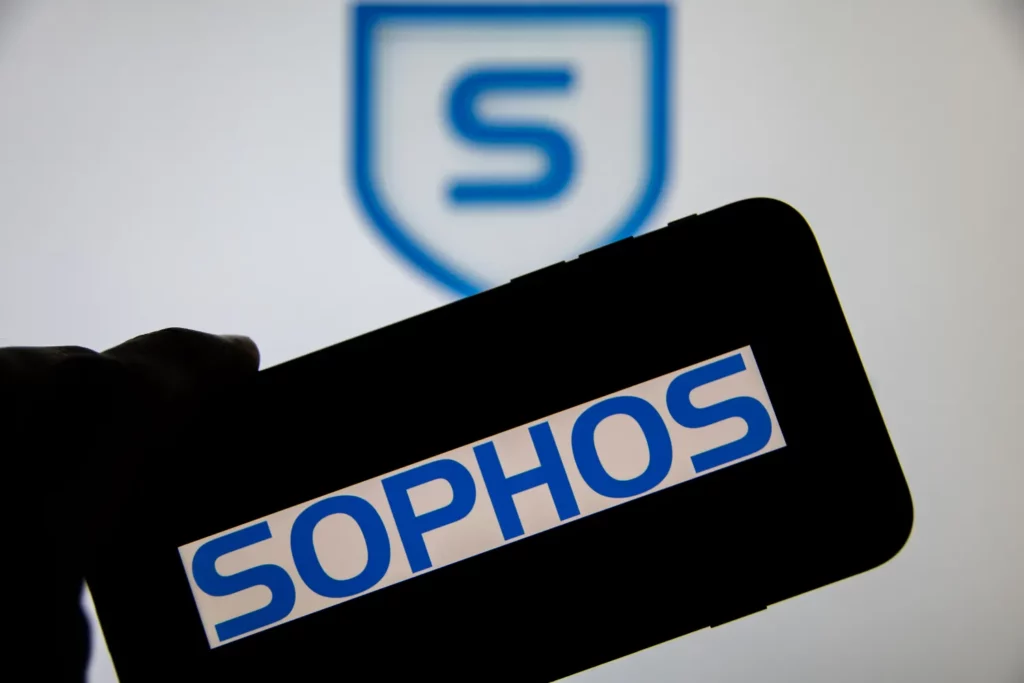
Sophos is a comprehensive cybersecurity software that offers many features and capabilities to protect users from digital threats. Let’s explore some of the key features and capabilities of Sophos:
- Endpoint Protection: Sophos provides robust endpoint protection for computers, laptops, and mobile devices. It offers real-time scanning and detection of malware, viruses, ransomware, and other malicious threats to ensure your endpoints’ security.
- Advanced Threat Detection: Sophos employs advanced threat detection technologies, including machine learning and behaviour-based analytics, to identify and block known as well as unknown threats. It can detect sophisticated malware and zero-day attacks, providing proactive protection.
- Web Protection and Filtering: Sophos offers web filtering capabilities to block access to malicious websites and enforce safe browsing policies. It helps prevent users from visiting potentially harmful websites and protects against web-based threats like phishing attacks.
- Firewall and Intrusion Prevention: Sophos includes a powerful firewall and intrusion prevention system (IPS) that monitors network traffic and blocks unauthorised access attempts. It provides additional protection against network-based attacks and helps secure your network infrastructure.
- Data Encryption and DLP: Sophos provides data encryption features to protect sensitive information stored on your devices or shared over networks. It ensures that data remains secure even if the device is lost or stolen. Additionally, it offers Data Loss Prevention (DLP) capabilities to prevent unauthorised data leakage.
- Email Security: Sophos offers email security solutions that protect against spam, phishing attempts, and email-borne threats. It scans incoming and outgoing emails, attachments, and URLs to detect and block malicious content, ensuring the safety of your email communications.
- Mobile Device Management: Sophos includes MDM, features for managing and securing mobile devices within an organisation. It allows administrators to enforce security policies, remotely locate and wipe devices, and protect corporate data on mobile devices.
- Centralised Management Console: Sophos provides a centralised management console allowing administrators to monitor and manage security across multiple endpoints and devices from a single interface. It simplifies security management and provides comprehensive visibility into the organisation’s security posture.
- Reporting and Analytics: Sophos offers reporting and analytics capabilities that provide insights into security events, threats, and system performance. It helps organisations track and analyse security incidents, identify trends, and make informed decisions improving their security posture.
- Integration and Compatibility: Sophos integrates with other security solutions and offers compatibility with various operating systems and platforms, including Windows, macOS, Linux, and mobile operating systems. This ensures seamless integration into existing IT infrastructure and provides comprehensive security coverage.
User Interface Comparison of Avast and Sophos
When comparing the user interfaces (UI) of Sophos and Avast, it’s important to note that both software solutions aim to provide an intuitive and user-friendly experience. Here’s a comparison of their UIs:
Avast

- Modern and Stylish: Avast features a modern and visually appealing user interface with a sleek design. It offers a pleasing user experience with vibrant colours and intuitive icons.
- Easy Navigation: Avast has a user-friendly interface that is easy to navigate, with clearly labelled menus and options. Users can easily access different features and settings through the main dashboard and menus.
- Quick Scan and One-Click Fixes: Avast emphasises simplicity and convenience by providing one-click scan options, and quick-fix features for common security issues. This allows users to perform quick scans and resolve potential threats with minimal effort.
- Real-Time Protection Status: Avast prominently displays the real-time protection status on its dashboard, ensuring users are aware of the active protection features and any potential risks that require attention.
Both Sophos and Avast offer user-friendly interfaces. The choice between them ultimately depends on individual preferences and specific requirements.
Sophos
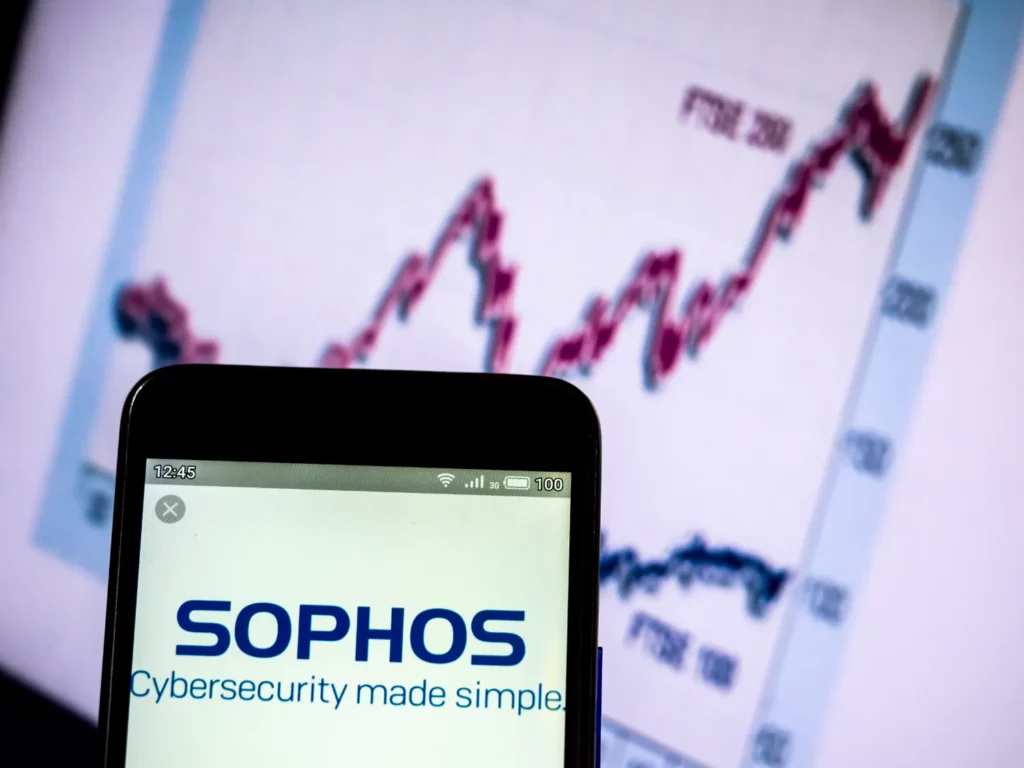
- Clean and Organised: Sophos has a clean and organised user interface with a modern design that is easy to navigate. The main dashboard presents a clear overview of the system’s security status and any detected threats.
- Simplified Menus: The menus and options in Sophos are well-structured and logically grouped, making it easy for users to access different features and settings. This helps users quickly find the specific functionalities they need.
- Minimalistic Design: The UI of Sophos follows a minimalistic design approach, focusing on providing essential information and key functionalities without overwhelming the user with excessive details.
- Centralised Management: Sophos offers a centralised management console that allows users to manage security settings and configurations for multiple devices from a single interface. This centralised approach simplifies the management of security across various endpoints.
- Informative Notifications: Sophos provides clear and informative notifications about security events, threat detections, and system updates. These notifications help users stay informed about the security status of their devices.
Performance and System Impact
Sophos and Avast are reputable cybersecurity software providers that protect against various threats. When comparing the impact on system resources, including CPU usage, memory consumption, and disk space, it is essential to consider their performance.
Sophos is known for its lightweight nature, ensuring users enjoy comprehensive security without sacrificing system performance. Sophos utilises advanced algorithms and optimisation techniques to reduce CPU usage, allowing for smooth operation even during scanning or real-time protection. Moreover, it efficiently manages memory consumption, avoiding excessive strain on the system’s RAM. Sophos also optimises its installation package and database updates to minimise the disk space required.
Similarly, Avast is recognised for its efficient resource utilisation. It has a well-optimised scanning engine balances system resource usage while providing robust protection. Avast employs intelligent algorithms to minimise CPU usage during scans and real-time protection, allowing users to perform tasks without experiencing significant slowdowns. It also utilises memory management techniques to ensure it doesn’t excessively consume system memory. Avast’s installation package is typically compact, offering customisation options to control the disk space used by various components.
Both Sophos and Avast are designed to have a minimal impact on system resources. They aim to provide effective security while ensuring the user’s computer operates smoothly.
Pricing and Licencing
Let’s compare the two software providers based on their pricing models:
Avast
- Free Version: Avast offers a free antivirus solution that provides basic protection against malware and viruses. It’s suitable for individual users who have minimal security needs.
- Paid Versions: Avast offers several paid versions with varying features and levels of protection. These include Avast Premium Security, Avast Internet Security, and Avast Ultimate. The pricing for these versions varies based on the number of devices covered and the subscription duration.
- Licencing: Avast’s licencing model typically involves a subscription-based model, where users pay an annual or multi-year fee to access the software’s advanced features and premium security offerings. They also offer flexible licencing options for businesses and organisations.
Sophos
- Sophos Home Free: Sophos offers a free version of their software for home users, providing basic antivirus protection for up to three devices.
- Sophos Home Premium: For users looking for more advanced features, Sophos offers a premium version with additional security capabilities such as advanced malware detection, real-time threat protection, and privacy safeguards. The premium version is available at a reasonable annual subscription fee.
- Licencing: Sophos primarily offers subscription-based licencing for their software. Users can choose the number of devices they want to cover, and the pricing varies based on the subscription duration and the number of devices included in the licence.
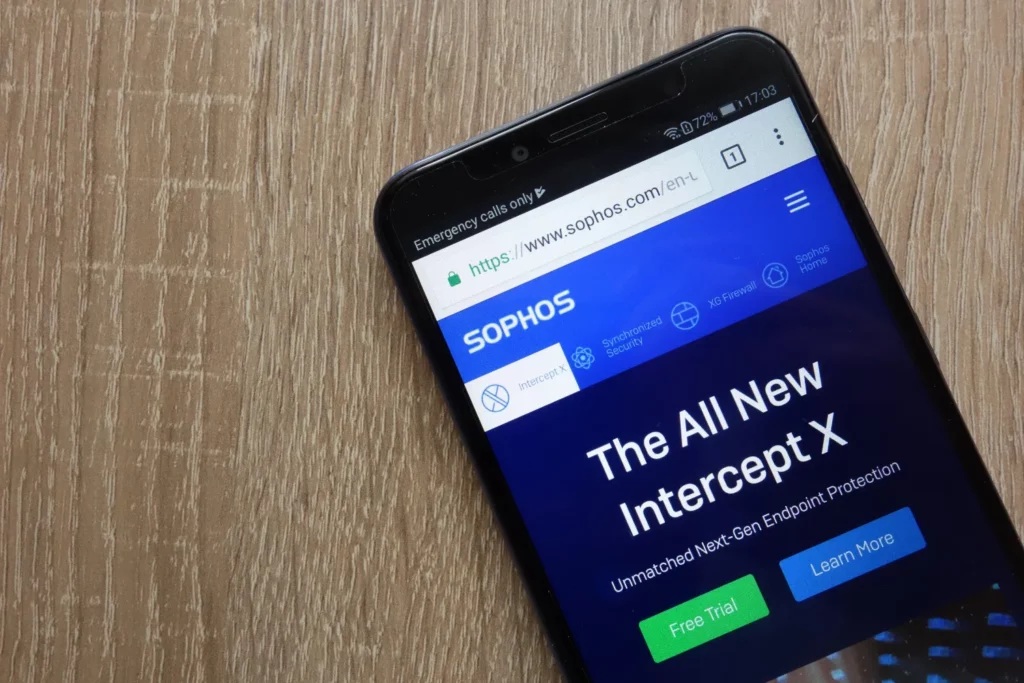
Customer Support and Reputation
When considering a cybersecurity software provider, customer support and reputation are important factors to assess. Let’s compare Avast and Sophos in terms of their customer support and reputation:
Customer Support
- Avast: Avast offers a variety of customer support channels, including email support and a comprehensive online knowledge base. They also provide 24/7 phone support for paid users. However, some users have reported mixed experiences with Avast’s customer support, citing delayed response times and difficulties in resolving.
- Sophos: Sophos provides multiple customer support options, including phone and email support. They also offer an online community forum where users can seek assistance from Sophos experts and fellow users. Sophos is generally praised for its responsive and helpful customer support, with users reporting positive experiences.
Reputation
- Avast: Avast has been a well-established name in the cybersecurity industry for many years. They have a large user base and are known for offering a free antivirus solution. However, Avast has faced controversies related to privacy concerns and data collection practices. These incidents have raised questions about the company’s reputation and commitment to user privacy.
- Sophos: Sophos has a strong reputation as a reliable and trusted cybersecurity provider. They are known for focusing on enterprise-level security solutions, with a history of catering to business customers. Sophos has received positive reviews for its effectiveness in threat detection and prevention, contributing to its reputation as a reputable cybersecurity solution provider.
Limitations and Drawbacks
When evaluating software options, it’s important to consider not only the strengths but also the limitations and drawbacks. Let’s explore some limitations and drawbacks of both Avast and Sophos:
Avast
- Aggressive Upselling: Avast has faced criticism for its aggressive upselling tactics, with frequent pop-ups and notifications encouraging users to upgrade to premium versions. This can be disruptive and annoying for some users.
- Initial Scan Time: Avast’s initial scan may take longer than other antivirus software. This can be considered a drawback for users who prefer quick scan times, especially when scanning large volumes of data.
- Privacy Concerns: Avast has faced controversies related to privacy concerns. It was discovered that the free version of Avast collected and sold user data to third parties. While the company has made efforts to address these concerns, it’s important for users to review and adjust privacy settings during installation carefully.
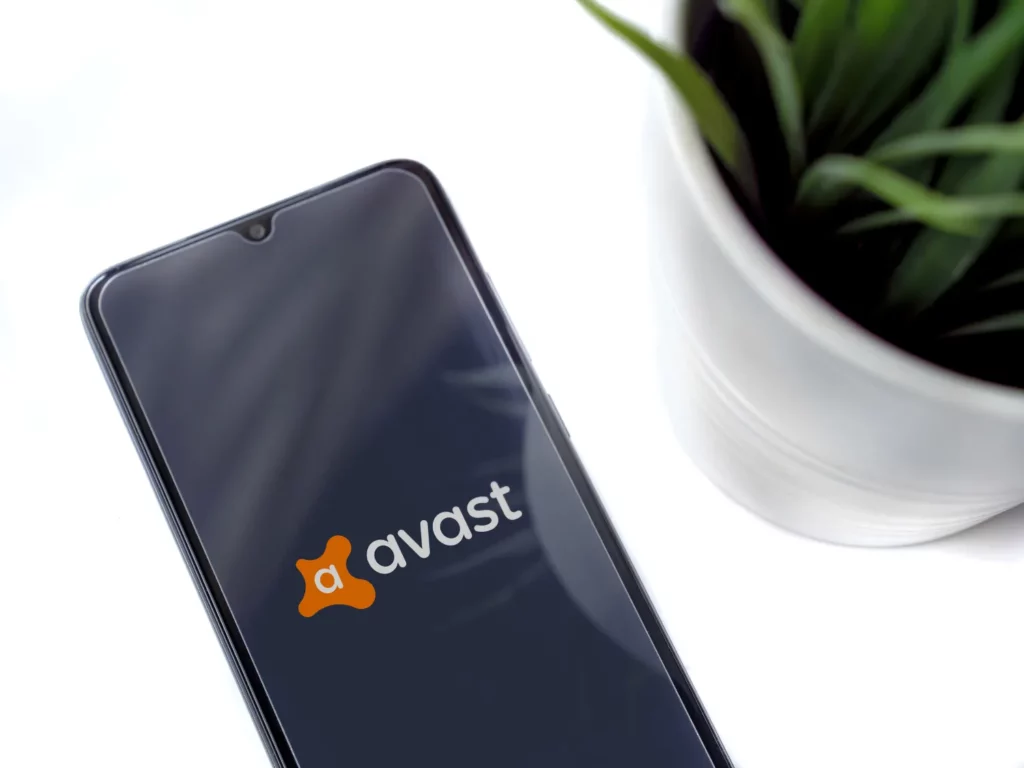
Sophos
- Complexity: Sophos’s wide range of features and advanced functionality may make it more complex for novice users. Its extensive configuration options and settings may require technical expertise to optimise and utilise effectively.
- Resource Intensive: While Sophos is generally efficient in resource usage, it may still have a noticeable impact on system performance, especially on older or lower-end computers. Users with limited system resources may experience some slowdowns during intensive scanning or real-time protection.
- Limited Free Version: Sophos offers a free version but has limited features compared to its paid counterparts. Some advanced functionality and additional protection layers are only available in premium versions.
Avast and Sophos are reputable antivirus solutions offering robust protection against cyber threats. While Avast excels in its user-friendly interface, extensive features, and competitive pricing options, Sophos stands out with its advanced threat detection capabilities, centralised management, and a strong focus on enterprise-level security.
Ultimately, the choice between Avast and Sophos depends on individual needs and preferences, as well as the user’s or organisation’s specific requirements. It is crucial to carefully evaluate each antivirus solution’s features, performance, pricing, and customer support to make an informed decision. Whether you prioritise ease of use, advanced detection capabilities, or comprehensive management tools, Avast and Sophos are reliable options in the ever-evolving cybersecurity landscape.
